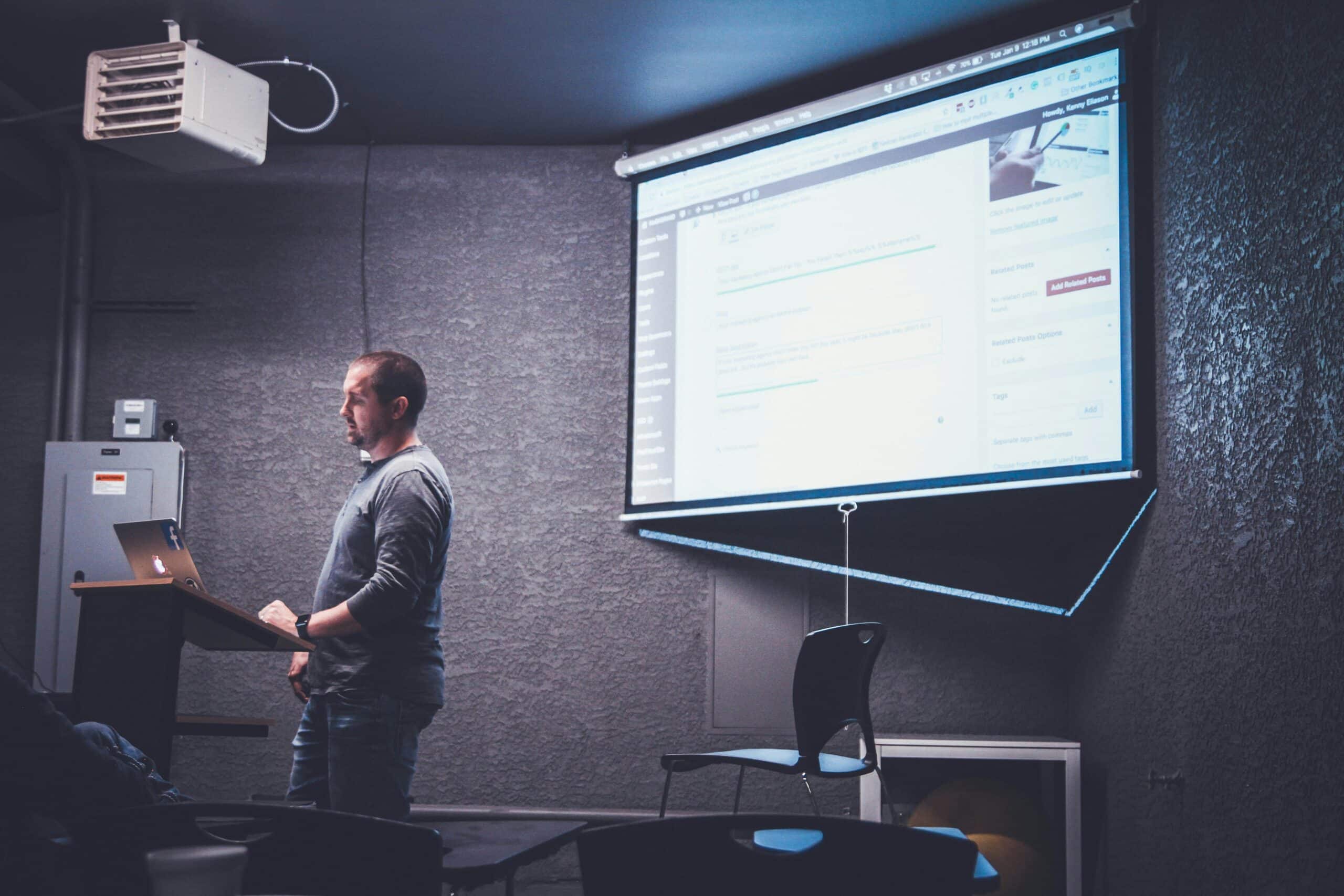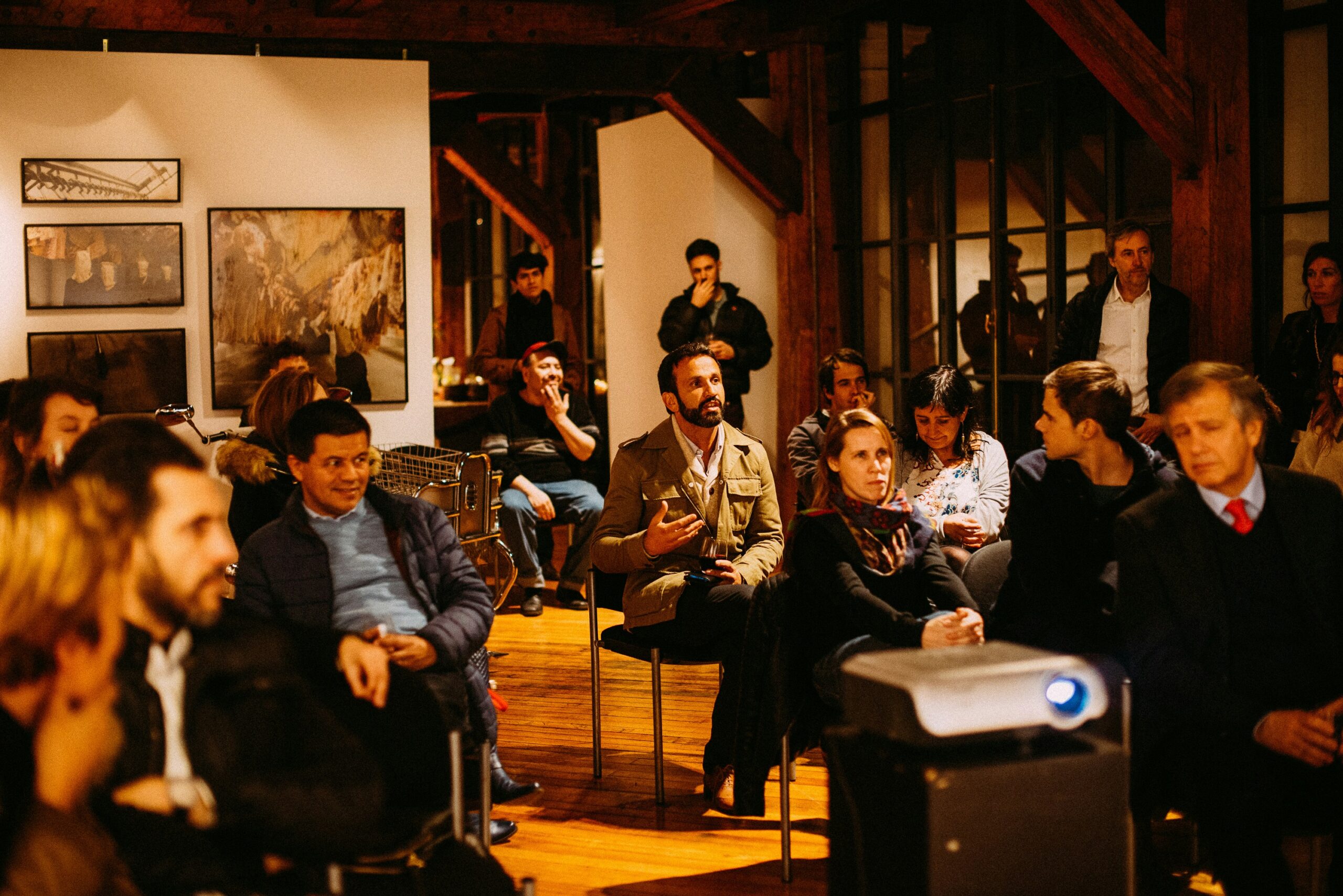Corporate event planning can be challenging, but it doesn’t have to be. This guide covers essential aspects of organizing successful corporate events, focusing on crucial rentals like tableware and linen. We’ll explore venue selection, partnering with reliable rental services, and managing event logistics. By the end, you’ll have the knowledge to plan impressive corporate events that leave a lasting impact on attendees. Whether you’re new to event planning or looking to refine your skills, this comprehensive guide will help you navigate the complexities of corporate event management with confidence.
Key Takeaways
- Successful corporate event planning requires clear objectives, target audience identification, and a practical budget
- Essential rentals like audio-visual equipment and furniture are crucial for creating engaging corporate events
- Partnering with reliable vendors ensures quality rentals and smooth event execution
- Effective logistics management and contingency planning are vital for successful corporate events
- Evaluating event success through KPIs and attendee feedback helps improve future corporate events
Understanding the Basics of Corporate Event Planning

Corporate event planning requires a clear understanding of key elements. This section covers defining event objectives, identifying the target audience, establishing a budget, and creating a timeline. These basics form the foundation for successful event production, from holiday parties to large gatherings requiring crowd control. Proper planning ensures the effective selection of essential rentals for any corporate event.
Defining Clear Objectives for Your Event
Defining clear objectives is crucial for successful corporate event planning. Event organizers must establish specific goals that align with the company’s overall mission and customer satisfaction targets. These objectives guide decisions on essential rentals, such as chairs and dance floors, ensuring the event’s services meet attendees’ expectations and contribute to a positive corporate image.
Identifying Your Target Audience
Identifying the target audience is a critical step in corporate event planning. Event organizers must consider factors such as age, profession, and interests to tailor the event experience effectively. This understanding influences decisions on essential rentals, from selecting appropriate catering options to choosing the right venue size for a wedding reception. By aligning the event vision with the audience’s preferences and budget constraints, planners can create affordable yet memorable experiences that resonate with attendees.
Establishing a Practical Budget
Establishing a practical budget is crucial for successful corporate event planning. Event organizers must consider costs for essential rentals, such as lighting and furniture, while also factoring in expenses for logistics and potential partners. By carefully allocating funds and negotiating with vendors, planners can create a balanced budget that ensures all necessary elements are covered without overspending. A well-structured budget helps maintain financial control and allows for flexibility in case of unexpected expenses:
Creating a Comprehensive Timeline
Creating a comprehensive timeline is essential for successful corporate event planning. Event organizers should establish key milestones, including dates for securing venues, confirming essential rentals, and finalizing customer service details. This timeline should account for production lead times, inventory availability, and service coordination to ensure a smooth event execution. By mapping out tasks and deadlines, planners can effectively manage resources and address potential challenges before they impact the event’s success.
Selecting the Perfect Venue for Your Corporate Event

Selecting the right venue is crucial for successful corporate event planning. This section covers assessing venue options based on event needs, considering location and accessibility, evaluating amenities and services, and booking procedures. Event planners must consider factors like reputation, equipment rental availability, and suitability for various events, including weddings. Proper venue selection ensures a solid foundation for memorable corporate gatherings.
Assessing Venue Options Based on Event Needs
Assessing venue options based on event needs is a critical step to start planning a successful corporate event. Event planners must consider factors such as capacity, layout, and technical capabilities to ensure the chosen venue aligns with the event’s objectives. They should evaluate each potential location against a checklist of requirements, including:
- Adequate space for attendees and activities
- Appropriate audiovisual equipment
- Suitable lighting options
- Sufficient power outlets
- Proper ventilation and climate control
- Accessibility features for all attendees
Considering Location and Accessibility
Location and accessibility are crucial factors in selecting a venue for corporate events. Event planners must consider the venue’s proximity to transportation hubs, parking availability, and ease of access for all attendees. They should also evaluate the surrounding area for potential distractions or noise that could impact the event. Key considerations include:
- Distance from airports, hotels, and public transportation
- Parking capacity and cost
- Accessibility for individuals with disabilities
- Traffic patterns and potential congestion
- Nearby amenities for attendees
Evaluating Venue Amenities and Services
Evaluating venue amenities and services is crucial for successful corporate event planning. Event organizers should assess the available facilities, such as catering options, audiovisual equipment, and technical support. They must also consider the venue’s ability to accommodate essential rentals and provide necessary services for various event types. Key factors to evaluate include:
- On-site catering capabilities
- Quality and variety of audiovisual equipment
- Availability of event staff and technical support
- Flexibility in room layouts and configurations
- Wi-Fi connectivity and bandwidth
- Green room or preparation areas for speakers or performers
Booking and Securing Your Chosen Venue
Booking and securing the chosen venue is a critical step in corporate event planning. Event organizers should carefully review the venue contract, paying attention to deposit requirements, cancellation policies, and any restrictions on essential rentals or event activities. They must also confirm the availability of necessary amenities and services, such as catering options and audiovisual equipment, to ensure a smooth event execution. Timely communication with the venue staff and prompt submission of required documentation will help secure the desired date and avoid potential conflicts.
Essential Rentals to Enhance Your Corporate Event

Essential rentals play a crucial role in enhancing corporate events. This section explores key elements, including audio-visual equipment, furniture arrangements, decorative elements, lighting solutions, and outdoor structures. These rentals contribute to creating a comfortable, branded, and engaging atmosphere for attendees, whether the event is held indoors or outdoors.
Audio-Visual Equipment for Presentations and Entertainment
Audio-visual equipment is essential for creating engaging presentations and entertainment at corporate events. Event planners should consider renting high-quality projectors, screens, and sound systems to ensure clear visuals and crisp audio throughout the venue. Wireless microphones and mixing boards can enhance speaker presentations, while LED displays and interactive touchscreens can add a modern touch to product demonstrations or information kiosks.
Furniture and Seating Arrangements for Comfort
Furniture and seating arrangements are crucial for attendee comfort at corporate events. Event planners should select appropriate chairs, tables, and lounge furniture to accommodate different activities and networking opportunities. Consideration must be given to the event’s duration, audience demographics, and space limitations when choosing seating options. A well-planned layout can enhance interaction and engagement while ensuring guests remain comfortable throughout the event:
Decorative Elements to Reflect Your Brand
Decorative elements play a crucial role in reflecting a company’s brand at corporate events. Event planners can rent custom banners, signage, and branded table linens to create a cohesive visual identity throughout the venue. Incorporating company colors in lighting, floral arrangements, and stage backdrops further reinforces brand recognition and creates a memorable atmosphere for attendees.
Lighting Solutions to Set the Mood
Lighting solutions play a vital role in setting the mood for corporate events. Event planners can rent a variety of lighting options, including LED uplights, spotlights, and intelligent lighting systems, to create the desired atmosphere. These versatile tools allow organizers to adjust color schemes, intensity, and patterns throughout the event, enhancing presentations, highlighting key areas, and creating dynamic visual effects that captivate attendees.
Tents and Outdoor Structures for Open-Air Events
Tents and outdoor structures are essential rentals for open-air corporate events. Event planners can choose from various options, including pole tents, frame tents, and clear-span structures, to accommodate different event sizes and weather conditions. These rentals provide shelter from sun and rain, creating a comfortable environment for attendees while allowing for flexible layouts and branding opportunities.
Partnering With Reliable Rental Vendors

Partnering with reliable rental vendors is crucial for successful corporate event planning. This section covers researching trusted suppliers, negotiating agreements, scheduling deliveries, and ensuring quality rentals. By following these steps, event planners can secure essential items and services, creating a smooth and professional experience for attendees.
Researching and Selecting Trusted Suppliers
Researching and selecting trusted suppliers is crucial for successful corporate event planning. Event organizers should evaluate potential vendors based on their reputation, experience, and reliability in providing essential rentals. They can use online reviews, industry recommendations, and past client testimonials to assess the quality of service offered by different suppliers. Planners should also consider factors such as inventory variety, pricing, and customer support when making their selection:
Negotiating Rental Agreements and Prices
Negotiating rental agreements and prices is a crucial step in corporate event planning. Event organizers should carefully review contracts, focusing on terms such as delivery schedules, setup fees, and damage waivers. They can often secure better rates by booking multiple items from a single vendor or committing to long-term partnerships. It’s important to clarify all costs upfront, including potential overtime charges or late return fees, to avoid unexpected expenses and ensure a smooth event execution.
Scheduling Delivery and Setup Times
Scheduling delivery and setup times is a critical aspect of partnering with rental vendors for corporate events. Event organizers must coordinate with suppliers to ensure all essential rentals arrive and are set up well before the event starts. They should create a detailed timeline, allowing for potential delays and unforeseen circumstances, and communicate clearly with vendors about access points, security procedures, and any venue-specific requirements.
Ensuring Quality and Condition of Rental Items
Ensuring the quality and condition of rental items is crucial for successful corporate event planning. Event organizers should inspect all rented equipment upon delivery, checking for cleanliness, functionality, and any signs of damage. They should document any issues immediately and communicate with the rental company to resolve problems before the event begins. This proactive approach helps prevent last-minute complications and ensures a smooth, professional event experience for attendees.
Managing Logistics and Event Coordination

Managing logistics and event coordination is crucial for successful corporate events. This section covers organizing transportation and accommodation, coordinating staff and volunteers, implementing contingency plans, and overseeing event setup and execution. Effective management of these aspects ensures smooth operations and a positive experience for attendees.
Organizing Transportation and Accommodation
Organizing transportation and accommodation for corporate events requires careful planning and coordination. Event planners must arrange suitable transportation options for attendees, such as shuttle services or carpooling programs, to ensure convenient access to the venue. They should also negotiate group rates with nearby hotels to provide affordable accommodation options for out-of-town guests. Effective communication of these arrangements to attendees helps streamline logistics and enhances the overall event experience.
Coordinating Event Staff and Volunteers
Coordinating event staff and volunteers is crucial for smooth corporate event execution. Event planners must recruit, train, and assign roles to team members, ensuring they understand their responsibilities and the event’s objectives. Clear communication channels and a well-defined chain of command help manage staff effectively while providing on-site support and guidance to ensure all tasks are completed efficiently.
Implementing Contingency Plans for Emergencies
Corporate event planners must implement contingency plans for emergencies. They should develop comprehensive strategies to address potential issues such as power outages, medical emergencies, or severe weather conditions. These plans should include clear evacuation procedures, designated emergency response teams, and backup equipment for critical event components. Regular staff training on emergency protocols ensures a swift and coordinated response to any unexpected situations that may arise during the event.
Overseeing Event Setup and Execution
Overseeing event setup and execution is crucial for successful corporate events. Event planners must coordinate with vendors, venue staff, and their own team to ensure all essential rentals are in place and functioning properly before guests arrive. They should conduct a final walkthrough, addressing any last-minute issues and verifying that all aspects of the event, from audiovisual equipment to catering stations, are set up according to plan. During the event, planners must remain vigilant, monitoring activities and making quick adjustments as needed to maintain a smooth flow and positive attendee experience.
Evaluating Event Success and Gathering Feedback

Evaluating event success and gathering feedback are crucial steps in corporate event planning. This section covers measuring key performance indicators, collecting attendee feedback, analyzing data for future improvements, and reporting results to stakeholders. These processes help event planners assess the effectiveness of their strategies and make informed decisions for upcoming events.
Measuring Key Performance Indicators
Measuring key performance indicators (KPIs) is essential for evaluating corporate event success. Event planners should establish specific, measurable metrics aligned with event objectives, such as attendance rates, engagement levels, and revenue generated. They can track these KPIs using various tools, including event management software, surveys, and social media analytics, to gather quantitative data on the event’s performance.
Soliciting Feedback From Attendees
Soliciting feedback from attendees is crucial for evaluating corporate event success. Event planners should use various methods to gather input, such as post-event surveys, mobile apps, or on-site feedback stations. These tools help collect valuable insights on attendee satisfaction, event highlights, and areas for improvement. To encourage participation, organizers can offer incentives or make the feedback process quick and easy to complete. Key areas to focus on when soliciting feedback include:
- Overall event experience
- Quality of presentations and speakers
- Venue suitability and comfort
- Effectiveness of audiovisual equipment
- Networking opportunities
- Catering and refreshments
- Event organization and logistics
Analyzing Data to Improve Future Events
Analyzing data collected from corporate events provides valuable insights for future improvements. Event planners should examine both quantitative and qualitative data, including attendance figures, survey responses, and social media engagement metrics. By identifying trends and patterns, organizers can make data-driven decisions to enhance upcoming events, such as adjusting venue choices, refining programming, or optimizing essential rentals. This analysis helps event planners continuously improve their strategies and deliver more successful corporate gatherings.
Reporting Results to Stakeholders
Reporting results to stakeholders is a critical step in evaluating corporate event success. Event planners should prepare comprehensive reports that highlight key performance indicators, attendee feedback, and financial outcomes. These reports should present data in a clear, concise format using charts and graphs to illustrate important trends and achievements. By providing stakeholders with a thorough analysis of the event’s performance, planners demonstrate the value of their efforts and justify future investments in corporate events.
Conclusion
Mastering corporate event planning requires a comprehensive approach, from understanding the basics to selecting the perfect venue and essential rentals. Partnering with reliable vendors, managing logistics, and coordinating every aspect of the event is crucial for success. Evaluating event outcomes and gathering feedback provide valuable insights for continuous improvement. By following this guide, event planners can create memorable corporate gatherings that meet objectives, engage attendees, and deliver lasting value for their organizations.

